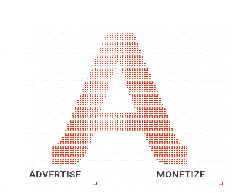Day 7: IFRS Accounting Policies (IAS 8)
The International Accounting Standard 8 (IAS 8) provides guidelines for the selection and application of accounting policies, changes in accounting estimates, and prior period errors. This standard is crucial in ensuring that financial statements are presented in a consistent and comparable manner, allowing users to make informed decisions.
Introduction to IAS 8
IAS 8 is a critical standard that provides guidance on the selection and application of accounting policies, changes in accounting estimates, and prior period errors. The standard is designed to ensure that financial statements are presented in a fair and consistent manner, allowing users to compare the financial performance and position of an entity over time.
The standard is divided into several sections, each dealing with a specific aspect of accounting policies and estimates. The sections include:
- Scope: This section outlines the scope of the standard and the entities to which it applies.
- Definitions: This section provides definitions of key terms used in the standard, including accounting policies, accounting estimates, and prior period errors.
- Selection and Application of Accounting Policies: This section provides guidance on the selection and application of accounting policies, including the consistency and comparability of financial statements.
- Changes in Accounting Estimates: This section provides guidance on how to account for changes in accounting estimates, including the review and revision of estimates.
- Prior Period Errors: This section provides guidance on how to correct prior period errors, including the identification and correction of errors.
Selection and Application of Accounting Policies
The selection and application of accounting policies are critical components of financial reporting. IAS 8 requires entities to select and apply accounting policies in a manner that results in financial statements that are presented fairly and consistently. The standard provides guidance on the following aspects:
- Consistency: Entities must apply accounting policies consistently from one period to another, unless a change in accounting policy is justified.
- Comparability: Entities must present financial statements in a manner that allows users to compare the financial performance and position of the entity over time.
- Materiality: Entities must consider the materiality of accounting policies and their impact on the financial statements.
- Disclosure: Entities must disclose their accounting policies and any changes to those policies.
The selection and application of accounting policies involve several steps, including:
- Identifying the accounting policy: Entities must identify the accounting policy that is relevant to the transaction or event.
- Selecting the accounting policy: Entities must select the accounting policy that is most appropriate, considering the requirements of IAS 8 and other relevant standards.
- Applying the accounting policy: Entities must apply the selected accounting policy consistently and in a manner that results in financial statements that are presented fairly and consistently.
Changes in Accounting Estimates
Changes in accounting estimates are inevitable, and IAS 8 provides guidance on how to account for such changes. The standard requires entities to:
- Review and revise estimates: Entities must regularly review and revise their accounting estimates to ensure that they are still appropriate.
- Account for changes in estimates: Entities must account for changes in accounting estimates in the period in which the change occurs.
- Disclose changes in estimates: Entities must disclose changes in accounting estimates and their impact on the financial statements.
Changes in accounting estimates can arise from various sources, including:
- Changes in market conditions: Changes in market conditions, such as changes in interest rates or commodity prices, can affect accounting estimates.
- Changes in technology: Changes in technology can affect accounting estimates, such as changes in the useful life of assets.
- Changes in laws and regulations: Changes in laws and regulations can affect accounting estimates, such as changes in tax laws or environmental regulations.
Prior Period Errors
Prior period errors can have a significant impact on financial statements, and IAS 8 provides guidance on how to correct such errors. The standard requires entities to:
- Identify and correct errors: Entities must identify and correct prior period errors as soon as possible.
- Account for errors: Entities must account for prior period errors by restating the financial statements of the prior period.
- Disclose errors: Entities must disclose prior period errors and their impact on the financial statements.
Prior period errors can arise from various sources, including:
- Mathematical mistakes: Mathematical mistakes, such as errors in calculations or incorrect application of accounting policies, can result in prior period errors.
- Misinterpretation of accounting policies: Misinterpretation of accounting policies or standards can result in prior period errors.
- Omission of transactions: Omission of transactions or events can result in prior period errors.
The IAS 8 standard is crucial in ensuring that financial statements are presented in a consistent and comparable manner. The standard provides guidance on the selection and application of accounting policies, changes in accounting estimates, and prior period errors. By following the guidelines set out in IAS 8, entities can ensure that their financial statements are presented fairly and consistently, allowing users to make informed decisions.
In addition to the guidance provided by IAS 8, entities must also consider the requirements of other IFRS standards and interpretations. The International Accounting Standards Board (IASB) regularly issues new standards and interpretations, and entities must stay up-to-date with these developments to ensure that their financial statements are presented in accordance with IFRS.
The application of IAS 8 can be complex, and entities may require guidance on how to implement the standard. The IASB provides guidance and support to entities, including the issuance of implementation guidance and the provision of training and education programs.
In conclusion, IAS 8 is a critical standard that provides guidance on the selection and application of accounting policies, changes in accounting estimates, and prior period errors. Entities must follow the guidelines set out in IAS 8 to ensure that their financial statements are presented fairly and consistently. By doing so, entities can provide users with high-quality financial information that is useful for making informed decisions.
Importance of IAS 8
IAS 8 is an important standard that provides guidance on the selection and application of accounting policies, changes in accounting estimates, and prior period errors. The standard is crucial in ensuring that financial statements are presented in a consistent and comparable manner, allowing users to make informed decisions.
The importance of IAS 8 can be seen in the following aspects:
-
Consistency: IAS 8 ensures that financial statements are presented consistently, allowing users to compare the financial performance and position of an entity over time.
-
Comparability: IAS 8 ensures that financial statements are presented in a manner that allows users to compare the financial performance and position of different entities.
-
Materiality: IAS 8 ensures that entities consider the materiality of accounting policies and their impact on the financial statements.
-
Disclosure: IAS 8 ensures that entities disclose their accounting policies and any changes to those policies, allowing users to make informed decisions.
Challenges in Implementing IAS 8
The implementation of IAS 8 can be challenging, and entities may face several difficulties, including:
- Complexity: IAS 8 is a complex standard that requires entities to consider several factors, including consistency, comparability, materiality, and disclosure.
- Lack of guidance: Entities may lack guidance on how to implement IAS 8, particularly in areas where the standard is silent or unclear.
- Limited resources: Entities may have limited resources, including time, money, and expertise, to devote to the implementation of IAS 8.
- Changes in accounting policies: Entities may face challenges in changing their accounting policies, particularly if the change requires significant adjustments to the financial statements.
Best Practices in Implementing IAS 8
To overcome the challenges in implementing IAS 8, entities can follow several best practices, including:
- Seeking guidance: Entities can seek guidance from the IASB, accounting firms, or other experts to ensure that they understand the requirements of IAS 8.
- Developing a comprehensive implementation plan: Entities can develop a comprehensive implementation plan that outlines the steps necessary to implement IAS 8.
- Providing training and education: Entities can provide training and education to their employees to ensure that they understand the requirements of IAS 8.
- Monitoring and reviewing: Entities can monitor and review their implementation of IAS 8 to ensure that they are complying with the standard.
Conclusion
In conclusion, IAS 8 is a critical standard that provides guidance on the selection and application of accounting policies, changes in accounting estimates, and prior period errors. Entities must follow the guidelines set out in IAS 8 to ensure that their financial statements are presented fairly and consistently. By doing so, entities can provide users with high-quality financial information that is useful for making informed decisions.
The implementation of IAS 8 can be challenging, but entities can overcome these challenges by seeking guidance, developing a comprehensive implementation plan, providing training and education, and monitoring and reviewing their implementation.
Bookkeeping Services @ ONE WEB ONE HUB: 
Our team of experts at One Web One Hub, in association with MTF & Co., can help you with all your bookkeeping needs, including the application of IAS 8. We provide a range of services, including financial statement preparation, accounting policy development, and financial reporting. Contact us at mtfco@onewbonehub.com to learn more about how we can help you.
Previous Post IFRS Presentation of Financial Statements (IAS 1)
Next Post IFRS 15 – Revenue from Contracts with Customers (Part 1)












